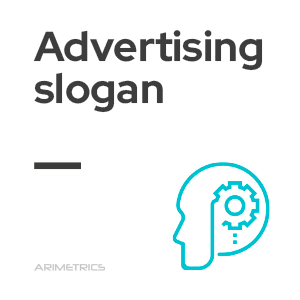 Definition:
Definition:
An advertising slogan is a short, catchy phrase designed to reinforce a company’s brand image. Its purpose is to help consumers remember a product, company or brand, thus increasing the chances of being selected by the audience. Slogans are essential to differentiate from other companies in the same industry, as they highlight the distinctive features and benefits that the brand offers to the consumer.
It is used in both advertising and marketing to convey the value of the product or brand in a witty and simple way, facilitating memorization through mnemonic techniques. Although the uses and approaches of the slogan have evolved over time, it remains an essential element in the advertising industry.
Function of an advertising slogan
The main purpose of the advertising slogan is to reinforce the presence of a company and its products or services. It is a tool to stand out from the competition in a saturated market. Catchy phrases give greater visibility and seek to convince the audience that the brand is the right choice. The success of a slogan lies not only in the quality of the product or service, but also in the ability of the message to remain in the consumer’s memory. The objectives of a slogan can be summarized as follows:
- Brand image reinforcement: Helps to consolidate brand identity in the consumer’s mind.
- Impact on the consumer: An ad with an effective slogan is engraved in the memory, facilitating brand recall.
- Benefits presentation: Clearly communicates the benefits or unique features of the product or service.
- Improved visibility and reach: Increases brand awareness in the market.
- Attracting potential consumers: Attracts new customers by highlighting the brand’s value proposition.
- Transmission of values and philosophy: Reflects the brand’s fundamental principles and values.
How to make an advertising slogan
There is no magic formula for creating a successful advertising slogan, since each brand has its own history and particularities. However, there are certain keys that can contribute to its creation:
- Length: They should be short to facilitate memorization and repetition.
- Comprehension: Easy to remember and understand, using clear and direct language.
- Benefit or action: They should present a tangible benefit or incite a specific action.
- Exclusivity: They identify and distinguish the brand, highlighting its uniqueness.
- Positive feelings: Convey positive emotions that resonate with the target audience.
In addition, it is important that the tagline is consistent with the brand’s identity and its overall marketing message. A good tagline not only attracts attention, but also reinforces the emotional connection with consumers, contributing to the long-term success of the brand.
